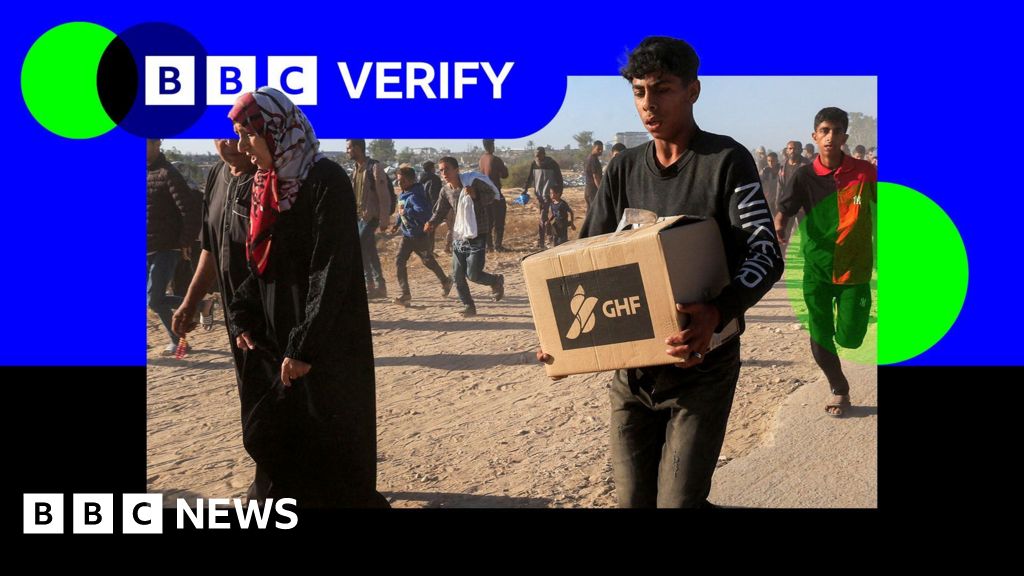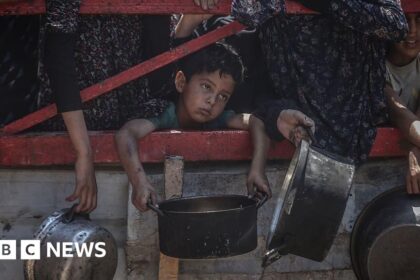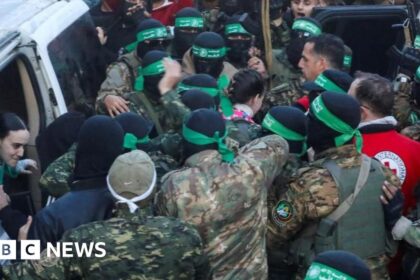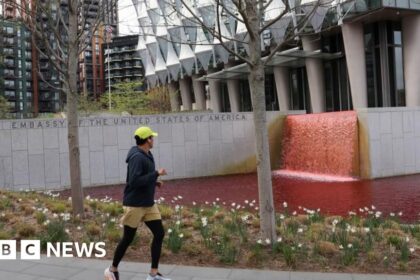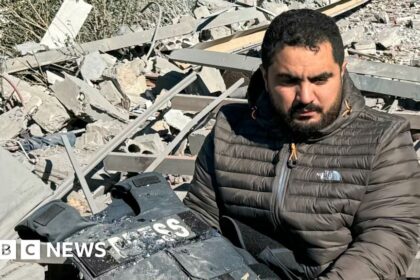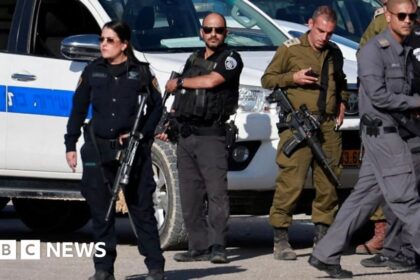**Gaza’s Food Crisis: Shortages and Starvation**
The United Nations has warned that over two million Palestinians in Gaza are facing a crisis of starvation, with deaths due to malnutrition increasing by the day. The humanitarian situation is dire, with food shortages and water scarcity exacerbating the problem.
In an effort to alleviate the suffering, the Gaza Humanitarian Foundation (GHF) has been distributing food boxes to those in need. The GHF, supported by Israel and the US, claims to have distributed 91 million meals since late May. However, experts have raised concerns about the nutritional value of these food boxes.
**What’s Inside the Boxes?**
The GHF shared images of the contents of their food boxes, which include dried goods such as pasta, chickpeas, lentils, wheat flour, and cooking oil. Ready-to-eat snacks like halva bars are also included. The organisation provided a “benchmark list” with calorie breakdowns, stating that each box provides 5.5 people with enough food for 3.5 days.
However, aid experts have expressed serious concerns about the nutritional value of these boxes. Prof Stuart Gordon from the London School of Economics analysed the GHF’s list and found it to be “seriously flawed.” He stated that the diet is essentially a first-aid solution, designed to stop acute hunger but lacking essential nutrients for long-term health.
**Hidden Health Risks**
Dr Andrew Seal, associate professor of international nutrition at University College London, also weighed in on the issue. He noted that the food boxes are deficient in iron, zinc, vitamins C, D, and B12, as well as vitamin K. Prolonged consumption would lead to a range of deficiencies and serious health issues, including anaemia and scurvy.
**Inadequate Support**
The GHF did not respond to BBC Verify’s questions regarding their nutritional advice or plans to address concerns raised by experts. Even if families manage to access these food boxes, they still face severe shortages of fuel and water to cook the contents. The UN Office for Humanitarian Affairs warned this week of a rapid deterioration of the water crisis in Gaza.
**Malnutrition Soars**
UN Secretary-General Antonio Guterres stated that Gazans are facing severe shortages of basic necessities, with malnutrition “soaring.” The World Food Programme (WFP) reported that 90,000 women and children urgently need treatment due to rising malnutrition rates. The WFP also warned that cooking gas supplies have stopped, forcing families to resort to unhealthy cooking methods.
**What Next?**
The situation in Gaza is dire, with food shortages and water scarcity exacerbating the humanitarian crisis. As aid agencies struggle to provide adequate support, it is essential to address the underlying issues driving this crisis. The international community must come together to find a solution that prioritizes the health and well-being of those affected.
Read More @ www.bbc.com




